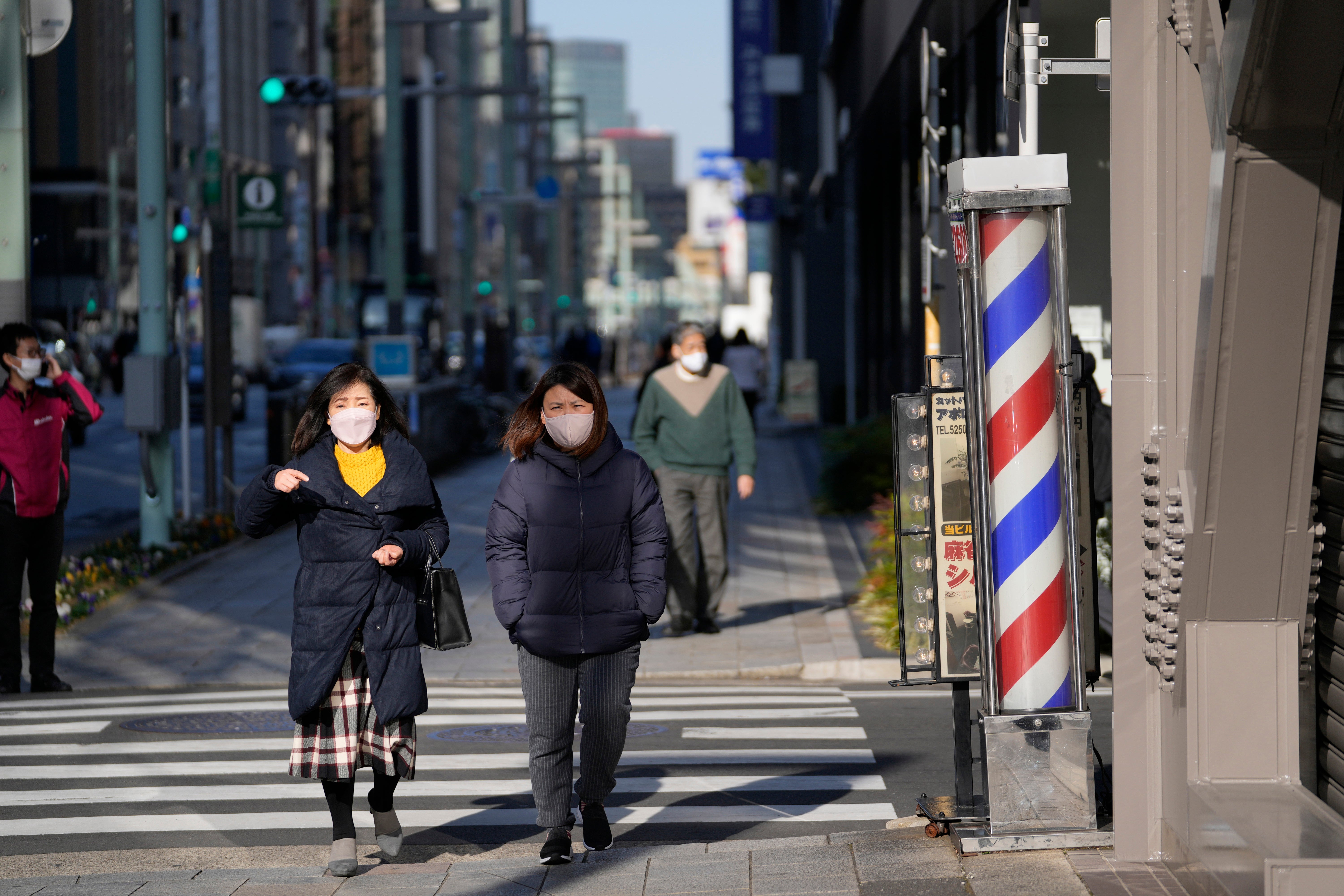Japan to extend virus measures in Tokyo and other areas
Prime Minister Fumio Kishida has announced plans to keep COVID-19 restrictions for Tokyo and 12 other areas for three more weeks until early March

Your support helps us to tell the story
From reproductive rights to climate change to Big Tech, The Independent is on the ground when the story is developing. Whether it's investigating the financials of Elon Musk's pro-Trump PAC or producing our latest documentary, 'The A Word', which shines a light on the American women fighting for reproductive rights, we know how important it is to parse out the facts from the messaging.
At such a critical moment in US history, we need reporters on the ground. Your donation allows us to keep sending journalists to speak to both sides of the story.
The Independent is trusted by Americans across the entire political spectrum. And unlike many other quality news outlets, we choose not to lock Americans out of our reporting and analysis with paywalls. We believe quality journalism should be available to everyone, paid for by those who can afford it.
Your support makes all the difference.Prime Minister Fumio Kishida on Wednesday announced plans to keep COVID-19 restrictions for Tokyo and 12 other areas for three more weeks until early March, as omicron infections show little signs of slowing and most Japanese still lack booster shots.
The current measures covering Tokyo and neighboring areas, Aichi in central Japan and Nagasaki in the south were initially scheduled to end Sunday but will remain until March 6, Kishida said.
“The infections led by the omicron variant are different from those in the past, and we are at the critical moment of our fight against it," Kishida said. “In order to balance anti-virus measures and social and economic activity, I'm determined to tackle the situation promptly."
The cases are still expanding, although the pace is not as steep as weeks ago, he said.
Nationwide, Japan on Tuesday logged more than 92,000 confirmed cases. Tokyo on Wednesday reported 18,287, while Osaka had 15,264.
Kishida's decision follows requests from governors in the affected areas, where daily cases are beginning to overwhelm hospitals with more serious ones among elderly people. There are also staff shortages among medical workers who are either infected or close contacts of those who test positive.
The measures are a less stringent version of a state of emergency and have been expanded and extended since January. They include shorter working hours for eateries in exchange for government subsidies and restrictions on large public events.
Japan has resisted the use of lockdowns as the government seeks to minimize damage to the economy. Even so, Japanese are increasingly becoming less cooperative in social distancing and other restrictions.
Kishida has faced criticism for the delayed and slow booster rollouts, which only started in December with medical workers. So far, only 7.2% of the population have received their jabs.
Kishida this week pledged to accelerate booster shots to as many as 1 million jabs a day by the end of February, but critics say the momentum would be lost by the time the vaccination rates rise to effective levels.
The booster drive was delayed because the government was slow in deciding to cut the eight-month interval between the first two shots and a third, even though it was possible for local municipalities with excess vaccines to start administrating boosters early.
Tokyo Gov. Yuriko Koike criticized Kishida for insisting on waiting until vaccine supplies were delivered to all municipalities so they can start with boosters at the same time.
In Osaka, Gov. Hirofumi Yoshimura declared a “medical emergency” after the prefecture's hospital occupancy rate exceeded 80%.
Yoshimura, in his online talks with Kishida, sought government support in deploying medical workers from public hospitals.
Kishida promised help, and proposed a plan to set up temporary medical facilities in Osaka and Tokyo to provide care for a total of 1,000 patients.
Nearly half million people with no or mild symptoms are staying home nationwide.
Tough border controls in place through the end of February have also triggered criticism from foreign students, scholars and business leaders who say the measures are not scientific and hurting Japan's international profile, economy and future.